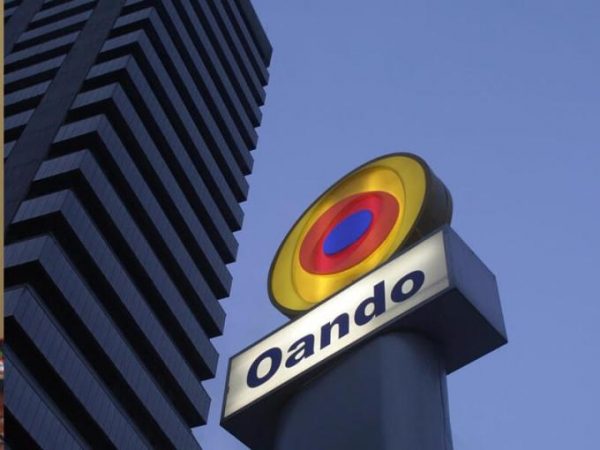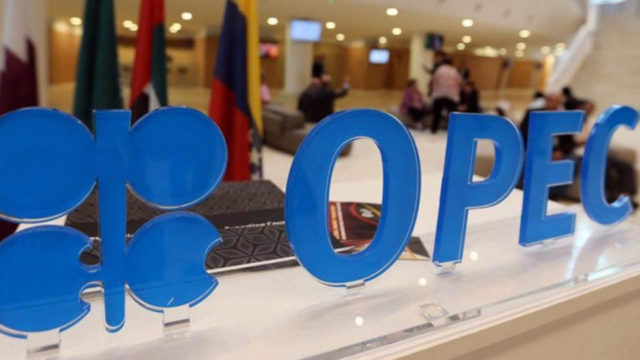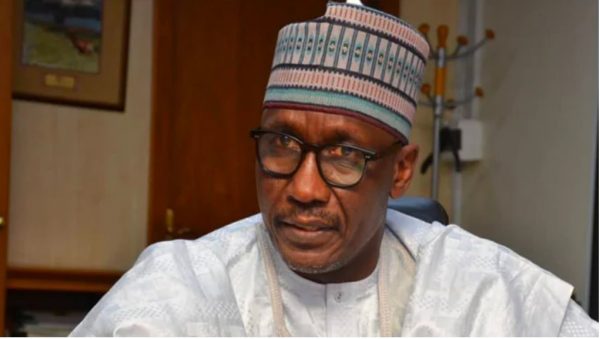After Protracted Dispute, Oando Reaches Peace Accord With Mangal
• ICRC moves to resolve disagreement between FAAN and Bi-Courtney
Some degree of respite may have come the way of Oando Plc, as the Nigerian energy firm stated Monday that it had reached a peace accord with one of its aggrieved shareholders, Alhaji Dahiru Barau Mangal.
The development could potentially turn the tide for the listed company, which spent the better part of 2017 defending its business and reputation, following the Securities and Exchange Commission’s (SEC) investigation into its affairs on petitions raised by two shareholders – Mangal and Ansbury Investments Inc.
The statement from Oando came just as the Infrastructure Concession Regulatory Commission (ICRC) initiated moves to resolve another long-standing dispute between the Federal Airports Authority of Nigeria (FAAN) and Bi-Courtney Aviation Services Limited (BASL) over the concession of the domestic terminal of the Murtala Muhammed Airport, Lagos, known as MMA2.
Oando said in a statement Monday that Mangal, a Katsina-born billionaire with extensive interests in aviation, oil and gas and trading, has confirmed his status as a substantial shareholder in the company, adding that all the issues he raised in his petition to the SEC had been successfully addressed and clarified.
According to the statement, this action was in line with the commitment made by the company in 2017 to ensure the successful conclusion of the SEC investigation so that Oando’s management could refocus its energy on managing the business optimally.
The statement quoted Mangal as saying: “Following the clarification I have received from Oando’s management team, I have withdrawn my petition to the SEC.
“I invested in Oando because I could see its potential. It is therefore with excitement that I concur to this peace accord signifying the renewal of our relationship; one that gives me more insight into the company’s operations and aspirations and involves more dialogue.”
The statement added that Mangal expressed confidence in Oando’s leadership team, saying he would support it to grow the company from strength to strength.
“I am confident in the company’s leadership team and trust that with the right support it will continue to grow from strength to strength, returning real value to all its shareholders including my good self,” he was quoted to have said.
Oando’s group chief executive, Mr. Jubril Adewale Tinubu, said he was pleased that the company was able to reach an amicable agreement with Mangal and had successfully addressed the concerns he raised in his petition to the SEC.
The company explained that the successful execution of the peace accord was mediated by the Emir of Kano, Alhaji Muhammadu Sanusi II, who observed that the development of the Nigerian economy was hinged on local participation.
“It is therefore an imperative that as a people we come together to make indigenous participation and success a reality. I have watched Wale Tinubu from his days in Ocean and Oil and I am extremely proud of his growth and the company he has built.
“Oando is proudly a Nigerian company whose impact has been positively felt by every Nigerian. The company is evidence of the progress we have made from an IOC-led sector to one that is thriving with a mix of indigenous and international players.
“I call on Alhaji Mangal and Wale Tinubu to see themselves as partners focused on achieving one goal; attainable only if they have confidence and trust in one another,” Sanusi explained.
“It is my belief that they have put the past behind them and are looking forward to working together to create greater success stories. As Nigerians we must protect our local industries and ultimately the development of this great nation and so I am excited by what this means for the company and Nigeria as a whole,” Sanusi added.
Following the peace accord and declaration of his substantial shareholding, the company stated that it has encouraged by Mangal to exercise his rights as a shareholder by having more oversight of the company’s affairs.
The company added that this would enable him gain a better understanding of the company’s business development plans, initiatives and operations.
“We encourage him to exercise his rights as a substantial shareholder and be more involved in the affairs of the company. Shareholders must be confident in the operations of the company they are invested in; this can only occur through dialogue and active participation,” Tinubu added.
In addition, subject to the provisions of the SEC Code, the Companies and Allied Matters Act (CAMA) and Oando’s board appointment process, the company stated that its board of directors would consider the appointment of representation for Mangal to the board.
“Oando has reinforced its stance that its business is run above board by publicly inviting Alhaji Mangal to have more oversight of its operations and exercise his rights as a shareholder which include the right to share in the company’s profitability, as well as have a degree of control over the selection of the company’s management team and general meeting voting rights,” the company explained.
Oando said the reconciliation came in the wake of minority shareholders expressing concern at the public nature of the SEC investigation and the negative impact it has had on the company’s reputation and its operations.
According to the statement, Oando took on the advice of its shareholders who requested the company to concentrate on reconciling with the aggrieved parties, and get back to the creation of value for its shareholders.
“This peace accord will see many of these shareholders breathing a sigh of relief and looking forward to a stronger balance sheet following the continued upward trajectory in the price of oil,” the company added.
Oando and its leadership team ran into troubled waters last year when Mangal and one of the founders and majority shareholders of Intels Nigeria Limited, Mr. Gabriele Volpi, moved against Tinubu, over the control of the company, citing mismanagement, cooked books and huge debts.
Mangal and Ansbury Inc., a firm set up by Volpi, had written separate petitions to SEC seeking for the sack of Tinubu and the entire management team.
Ansbury and Mangal had also asked SEC to stop Oando from going ahead with its annual general meeting (AGM) last year.
However, SEC allowed the company to hold its AGM, saying the meeting would not stop it (SEC) from carrying out further investigations into the company’s affairs.
Barely six weeks after the AGM, SEC wielded the big stick and ordered that the Nigerian Stock Exchange (NSE) should place the shares of Oando on a technical suspension.
The technical suspension was replicated on the Johannesburg Stock Exchange where Oando has a dual listing.
Citing several infringements, SEC also announced the appointment of a team of professionals to undertake a forensic audit of Oando’s affairs.
However, owing to the interference of the Minister of Finance, Mrs. Kemi Adeosun, who chairs SEC and whose ministry superintends the commission, the forensic audit has still not been carried out.
Instead, the then director-general of SEC, Mr. Mounir Gwarzo, who had insisted on the audit, was suspended by the minister.
But Adeosun debunked the claim, saying Gwarzo’s suspension was to allow for unhindered investigation of corruption allegations against him.
Meanwhile, just as Tinubu and Mangal were cosying up to each other, the ICRC Monday initiated moves to resolve another long-standing dispute between FAAN and Bi-Courtney Aviation Services Limited (BASL) over the domestic terminal of the Lagos airport, MMA2.
In this regard, the management of ICRC, led by its acting director-general, Chidi Izuwah, met with top officials of Bi-Courtney and FAAN in Lagos at MMA2 to chart a way to resolving the intractable disagreement, which officials of Bi-Courtney – the concessionaire of the domestic terminal – and the agency, both agreed was long overdue.
The terminal was commissioned in 2007 and concessioned out to Bi-Courtney by FAAN, as the representative of the federal government under a Build, Operate and Transfer (BOT) basis.
However, Bi-Courtney and FAAN have been at loggerheads, with the former insisting that the concession was for 36 years and that the terms of the agreement provided for the inclusion of the General Aviation Terminal (GAT) of the airport under the concession agreement.
FAAN, on the other hand, has held that it did not sanction the 36-year concession but for 12 years and that GAT was not part of the agreement.
The drawn out disagreement has seen the parties heading to court, with judgment debts running into billions of naira awarded in favour of Bi-Courtney.
Addressing the representatives of the two companies Monday, Izuwah said the objective of the ICRC was to amicably resolve the problem and end the crisis that has bedevilled the concession for years, so as to encourage the private sector to continue to invest in infrastructure development in the country.
“The commission is here today as the regulatory body saddled with the responsibility of monitoring and ensuring the efficient execution of all public-private partnerships entered into by MDAs (ministries, departments and agencies) on behalf of the federal government as spelt out under Section 20(a) of the ICRC Establishment Act,” Izuwa said.
He noted that MMA2, the uncompleted hotel and the conference centre that were also given out to Bi-Courtney under the concession arrangement by FAAN were projects that were particularly dear to ICRC.
“The projects no doubt have had their fair share of the challenges, which the commission is not unaware of. We want to assure you that the commission is equally concerned about the difficulties these projects have experienced, even for a model greenfield aviation PPP terminal in Nigeria,” Izuwah said.
In his remarks, the Chairman of Bi-Courtney, Dr. Wale Babalakin, while welcoming officials of ICRC and FAAN to MMA2, said if Nigeria intends to encourage private sector participation in infrastructure development in the country, it must abide by international regulations, and government and its agencies must respect and abide by concession agreements.
He denied the allegation that it was Bi-Courtney that drafted the concession agreement, adding that the company was not the winner of the concession, but Royal Standerton, which was the preferred bidder.
However, Bi-Courtney inherited the concession when the preferred bidder could not meet the pace of work expected by the federal government.
Also speaking on behalf of FAAN, the Deputy General Manager, Public Private Partnerships, Mrs. Monica Alphonse, maintained that GAT was never part of the concession agreement and that the monopoly status that stated that no other airport terminal should be developed during the period of the concession might have taken into cognisance the fact that the concession was for 12 years.
She described the clauses that gave Bi-Courtney such advantage as uncompetitive and accorded it a monopoly status, adding that the agreement should have been renegotiated if the concession was designed for 36 years. “Such agreements are repugnant to natural justice,” she said.
However, Mrs. Alphonse said FAAN was willing to ensure that the dispute between the agency and Bi-Courtney over the concession was resolved.
Bi-Courtney officials held the same view.








